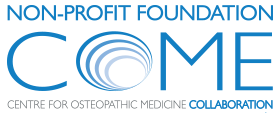Potential therapeutic effects of adjunct osteopathic manipulative treatments in SARS-CoV-2 patients
| By Patrick van Dun | 0 Comments
Potential therapeutic effects of adjunct osteopathic manipulative treatments in SARS-CoV-2 patients
Severe Acute Respiratory Syndrome Coronavirus 2 (SARS-CoV-2) affects various human organ systems, including the lymphatic, pulmonary, gastrointestinal, and neurologic systems. The utilization of osteopathic manipulative treatment (OMT) techniques has been clinically effective in the alleviation of various upper respiratory infection symptoms. Consequently, the use of osteopathic manipulative medicine (OMM) in SARS-CoV-2 patients as adjunct treatment can be beneficial in promoting overall recovery. This paper attempts to address the pathophysiology of SARS-CoV-2 infection at the cellular level and its downstream effects. Subsequently, osteopathic principles were investigated to evaluate potential therapeutic effects, providing a holistic approach in the SARS-CoV-2 treatment. Although the association between the benefits of OMT on clinical improvement during the 1918 Spanish influenza pandemic can be seen, further investigation is required to establish a direct correlation between OMT and symptom management in SARS-CoV-2 … MORE







